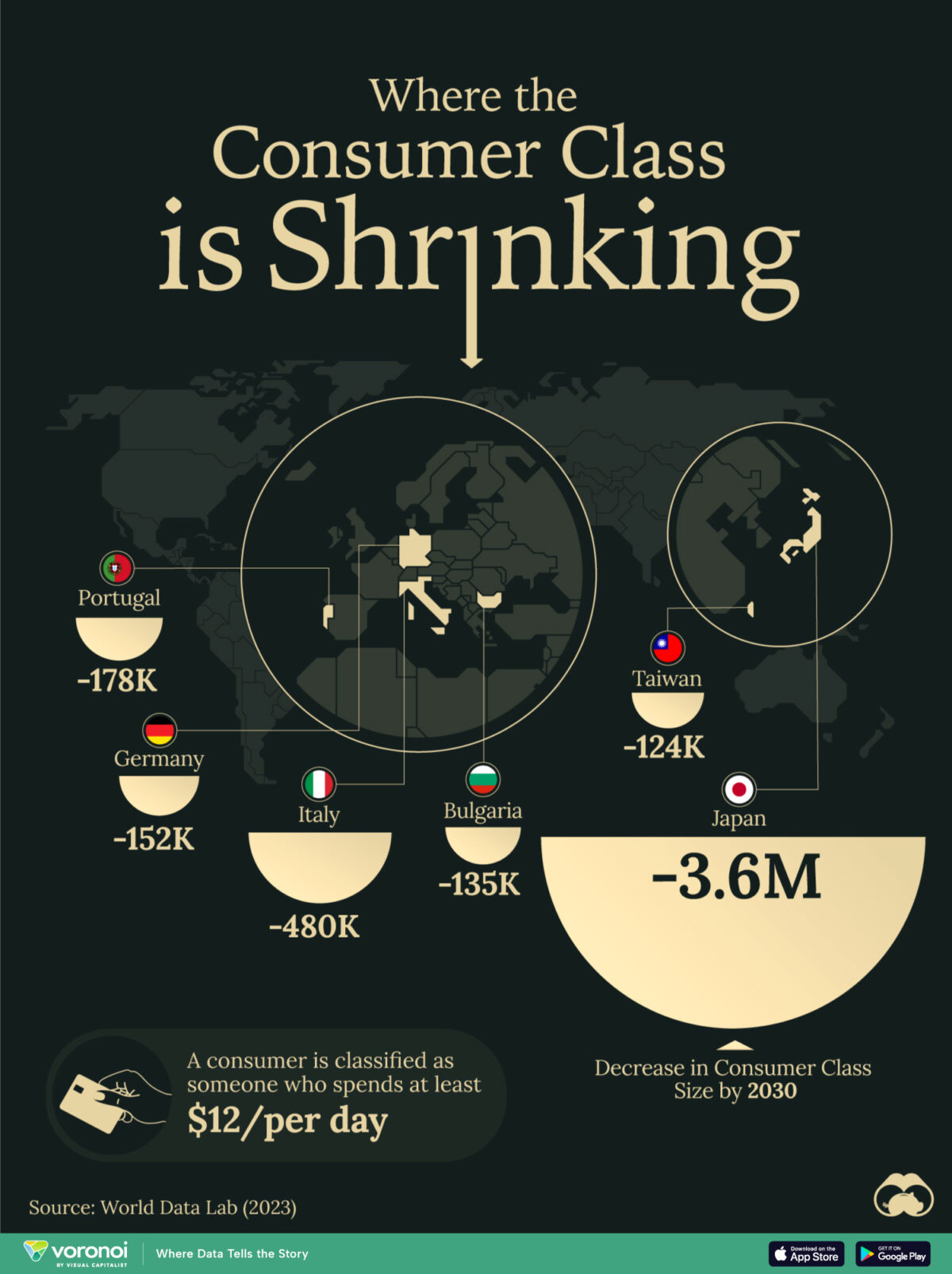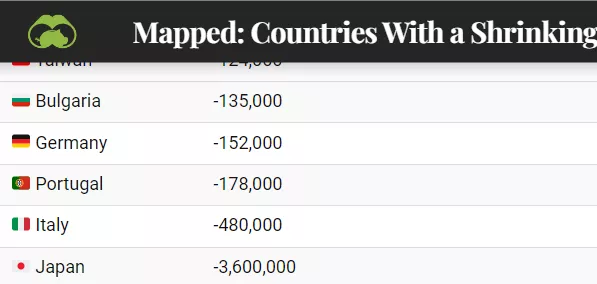Mapped: Countries With A Shrinking Consumer Class By 2030
(Click on image to enlarge)

Over 100 million people are expected to be added to the consumer class worldwide just in 2024.
Despite this, some countries are actually predicted to see a decline in their number of consumers over the coming years.
In this visualization, we list key countries that are losing consumers, using data from 2023 from the World Data Lab.
Demographic Changes Impacting Consumption
Under the definition used here, a consumer is classified as someone who spends at least $12 per day. Currently, more than half of the world’s population is considered to be in the consumer class—about 4 billion people in 2023.
According to World Data Lab research, demographic changes are the major factor driving increases and reductions in the number of consumers globally.
In Japan, where the most significant anticipated decline in consumer numbers is expected by 2030, the diminishing workforce and decreasing consumer base are mostly the consequence of the country’s low birth rate.

Currently, more than half of all municipalities in Japan are designated as depopulated districts, with schools shutting down and over 1.2 million small businesses owned by older individuals or families lacking successors.
In Europe as well, a decline in both birth rates and an aging population is impacting consumption. Italy is expected to lose almost half a million consumers by the end of the decade. Births in Italy dropped to a historic low below 400,000 in 2022, and Italy’s dearth of babies is considered a national emergency.
The emigration of working-age individuals can also shrink a country’s consumer class. For instance, between 2019 and 2022, Taiwan’s population shrank by roughly 300,000.
As the age of the average consumer grows, the demand for healthcare services, leisure activities, and retirement-related offerings will increase.
More By This Author:
The World’s Biggest Fashion Companies By Market Cap
Charted: Global Uranium Reserves, By Country
Mapped: GDP Growth Forecasts By Country In 2024
Disclosure: None



